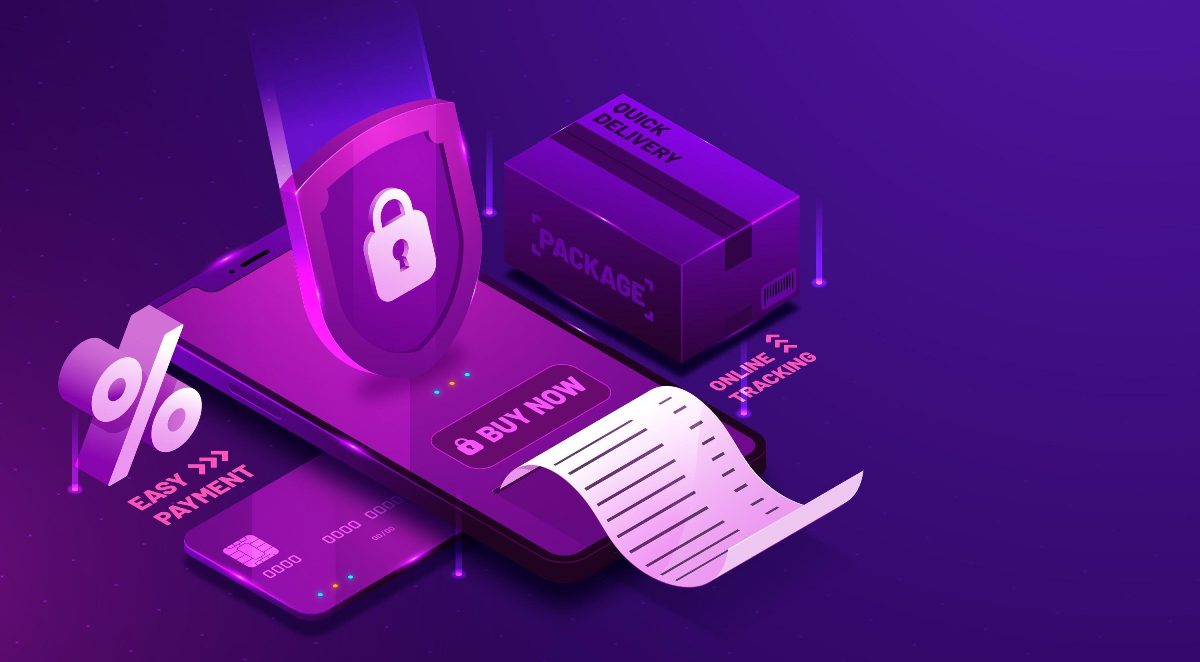Telecom
Telecom Experts Call for Action to Combat Vandalism and Protect Nigeria’s Critical Infrastructure

Industry leaders have identified important measures to secure telecommunications infrastructures in the country and ensure that investments in the telecoms space are protected.

L-r: Associate Director, Government Relations, IHS Nigeria, Bond Abbe; Co-founder, Infratel Africa, Dr. Tola Yusuf; Group Chief Operating Officer, WTES Projects Limited, Chidi Ajuzie; President, Association of Telecommunications Companies of Nigeria (ATCON), Tony Emoekpere; National Chairman, Association of Licensed Telecom Operators of Nigeria (ALTON); Engr. Gbenga Adebayo; and Convener, Policy Implementation Assisted Forum (PIAFo), Omobayo Azeez at the seventh edition of PIAFo on Critical National Information Infrastructure (CNII) Order Implementation held on Thursday in Lagos.
They argued that as much as the effective implementation of the Executive Order on the Designation and Protection of Critical National Information Infrastructure (CNII) is important, the Order cannot solely guarantee infrastructure safety except certain internal and standardisation issues are first resolved by operators.
Speaking at the 7th Policy Implementation Assisted Forum (PIAFo) Summit on CNII implementation held Thursday in Lagos, the industry leaders highlighted pressing issues such as infrastructure vandalism, unauthorized installations, and cable theft, while proposing actionable solutions to safeguard the country’s critical national infrastructure.
Gbenga Adebayo, Chairman of the Association of Licensed Telecommunications Operators of Nigeria (ALTON), stressed the importance of proper infrastructure maintenance and installation to prevent vandalism and theft.
He highlighted the widespread issue of stolen manhole covers and poles, attributing the problem to poor maintenance practices. “When properly installed, these components are difficult to remove. However, due to negligence, they are often left unsecured, making them easy targets for theft,” he said.
Adebayo also pointed out that community resistance to infrastructure projects has significantly hindered progress. He recounted instances where local communities prevented trucks from accessing sites due to previous unaddressed damages caused by contractors.
“A diesel supplier was blocked from entering an estate because a previous contractor had damaged their property and failed to make repairs. This lack of accountability breeds distrust and delays crucial projects,” he explained.
He urged stakeholders to foster better relationships with communities to prevent such conflicts.
Another critical issue Adebayo identified was the unauthorized installation of infrastructure without government approval, leading to inadvertent damage during road construction projects.
“Government agencies often damage unregistered infrastructure simply because they were not documented in official records. Proper approvals and collaboration with authorities will ensure accountability and protection of critical infrastructure,” he noted.
He called for improved industry coordination to resolve these challenges internally before seeking external solutions that are promised by the CNII provisions.
Echoing these concerns, Tony Emoekpere, President of the Association of Telecommunications Companies of Nigeria (ATCON), emphasised the need for standardisation and better coordination among stakeholders.
He pointed out that Nigeria’s infrastructure challenges go beyond technical issues, extending into environmental and moral concerns.
“We are dealing with a moral challenge. An engineer who switched from diesel to gas generators encountered a new problem—workers began stealing engine oil instead, as they could no longer siphon diesel. These issues require both technical and ethical solutions,” he explained.
Emoekpere argued that standardisation is the key to long-term sustainability. “If infrastructure is deployed in a suboptimal manner, failure is inevitable. We need to establish proper standards that all stakeholders—government, private sector, and the public—can align with,” he stated.
He also emphasized that Nigeria has strong policies, such as local content policies, but implementation remains a major challenge. “We must move beyond discussions and focus on actionable steps, follow-ups, and policy enforcement,” he added.
The importance of addressing cable theft and vandalism was further stressed by Wale Owoeye, CEO of Cedarview Communications Limited.
He described the alarming frequency of cable cuts, which disrupt network operations and drive up maintenance costs.
“Cable theft is a serious issue. Airtel representatives told me they experience a cable cut every six minutes. The assumption that all black cables contain valuable copper leads to reckless vandalism,” he explained.
To combat this growing problem, Owoeye proposed three key approaches, including reorientation, enforcement, and proactive measures.
“We need to engage local communities in their native languages, educating them on the consequences of vandalism. Strict legal penalties, including long-term imprisonment, should be enforced to deter offenders,” he said.
He also emphasized the need for preventive strategies rather than reactive responses. “Prevention is always more effective and cost-efficient than restoration,” he noted.
As a proactive measure, Owoeye proposed the creation of a dedicated fund to support advocacy and awareness campaigns across Nigeria.
To demonstrate his commitment, he pledged to contribute N500,000 quarterly as a seed fund and encouraged other industry players to follow suit.
“This is like planting a seed. With collective effort, we can grow it into a sustainable solution for protecting Nigeria’s telecom infrastructure,” he said.
The speakers collectively emphasised that addressing these challenges requires collaboration among industry players, government agencies, and local communities.
They called for a concerted effort to enforce policies, engage stakeholders, and implement practical solutions that will ensure the long-term sustainability of Nigeria’s telecommunication infrastructure.
Telecom
Mart Networks Rolls Out Tailored Cybersecurity Solution for Fintechs

Mart Networks, a leading cybersecurity distributor across Africa and the Middle East, has unveiled a specialized cybersecurity package tailored for fintech firms.

The solution, powered by Invinsense, Infopercept’s unified cybersecurity platform, aims to address the growing security needs of fintechs operating in highly regulated environments.
According to Moiz Maloo, Managing Director at Mart Networks, fintech companies face unique security challenges due to stringent regulatory requirements and increasing threats. “Most fintechs don’t have the luxury of multiple internal security teams or system integrators. With this focused offering, we’re providing an all-in-one platform with managed services built specifically for the fintech environment,” he said.
The offering integrates four key components: Invinsense XDR and Managed Detection & Response for real-time monitoring, Exposure Management for vulnerability detection, Security Compliance Management to support fintechs in meeting regulatory standards, and Cybersecurity Awareness Programs to empower teams against cyber threats.
Furthermore, the package includes deep application visibility, ensuring fintech-specific applications remain secure through Invinsense SIEM’s custom log ingestion capabilities. To reinforce protection, Infopercept’s engineering team will provide code-level fixes, patches, and infrastructure security enhancements.
With the rise of cloud-based fintech operations, the solution also incorporates full-stack cloud security, including API security, Cloud Infrastructure Entitlement Management (CIEM), and Application Security Posture Management (ASPM).
Mart Networks’ move underscores the growing importance of cybersecurity in Africa’s fintech sector, as financial services become increasingly digital and susceptible to evolving cyber threats.
Telecom
Equinix Expands Digital Footprint in Nigeria with Launch of LG2.3 Data Center

Equinix, Inc. the world’s digital infrastructure company™, has officially opened its latest data center expansion in Lagos. Called LG2.3, the facility will support Nigeria’s growing digital transformation efforts, providing state-of-the-art colocation and secure interconnection solutions which will empower businesses across the region.

It also signifies Equinix’s unwavering dedication to advancing Nigeria’s position in the global digital economy, reinforcing the company’s commitment to the region.
As part of the inauguration, Bruce Owen, President of EMEA at Equinix, along with other Equinix executives, led the ribbon-cutting ceremony at the newly expanded site. In addition to an official visit to the Governor of Lagos State, Equinix hosted an exclusive customer engagement event, bringing together key customers and partners from Nigeria’s business and technology sectors.
Attendees discussed shared successes and Equinix’s role in facilitating digital transformation, while also connecting directly with Bruce Owen for insights into how Equinix’s solutions drive innovation and business agility in the region.
Equinix executives also took part in a tree-planting ceremony, symbolising Equinix’s continued investment in sustainable initiatives across the globe and highlighting the company’s broader goal of reducing its carbon footprint while supporting greener practices across its operations worldwide.
Speaking about the expansion, Bruce Owen, President of EMEA at Equinix said “Nigeria is a crucial market for Equinix. Today’s opening is a clear demonstration of our continued commitments to invest and grow digital infrastructure that will benefit the many thousands of businesses in Nigeria and on the continent as a whole.
“I am deeply encouraged by the enthusiastic partnerships and innovations emerging from this dynamic region, which continue to inspire our commitment to Nigeria’s digital and sustainable future.”
Adding to this, Wole Abu, Managing Director of Equinix West Africa, highlighted the critical role of data centers in driving economic growth stating “Data centers continue to play a pivotal role in driving economic development in Nigeria, serving as critical infrastructure that supports digital transformation and economic growth.
“As governments and enterprises increasingly acknowledge their significance, global demand for data center capacity is poised to rise. While Africa’s demand for data solutions is still evolving compared to more mature markets, the continent is demonstrating strong potential for digital adoption and innovation.
“To meet this growing need, Equinix is actively advancing three major data center projects in Nigeria, with future expansion plans for Ghana, Côte d’Ivoire, and South Africa.”
Equinix remains steadfast in its mission to enable secure, scalable, and sustainable digital growth for economies across the world.
Telecom
African Women Hit Hardest as Mobile Internet Gender Gap Persists

African women remain among the most digitally excluded globally, with smartphone affordability and digital literacy among the key barriers. New data from the 2025 GSMA Mobile Gender Gap Report, launched recently, reveals a persistent global gender gap in mobile internet use across low- and middle-income countries (LMICs).

It further notes that literacy, digital skills, safety, and affordability of data also remain critical barriers. The report highlights that 885 million women across these regions still do not use mobile internet, with nearly 60% of them living in Sub-Saharan Africa and South Asia.
While mobile internet is the primary way women in LMICs access the internet, offering critical lifelines to health, education, and financial services, the pace of female adoption has stalled, leaving 235 million fewer women than men connected.
Claire Sibthorpe, head of digital inclusion at GSMA, highlighted that the gender gap had narrowed significantly between 2017 and 2020, but progress flatlined in recent years.
Although 2023 brought a slight improvement, restoring the gap to 15%, 2024 saw minimal change, with the gap settling at 14%.
The disparity is most severe in Sub-Saharan Africa, where women are 29% less likely than men to use mobile internet.
“It’s disheartening that progress in reducing the mobile internet gender gap has stalled. The digital divide is driven by deep-rooted socio-economic and cultural factors that disproportionately impact women,” said Sibthorpe.
GSMA projects that closing the gender gap by 2030 could add $1.3 trillion to GDP across LMICs and deliver $230 billion in revenue to the mobile industry.
The report, funded by the UK FCDO, Sida, and the Gates Foundation, stresses the urgent need for targeted investment and policy action to bridge the digital divide and ensure that no woman is left offline.
“The mobile internet gender gap is not going to close on its own. It is driven by deep-rooted social, economic, and cultural factors that disproportionately impact women,” said Sibthorpe.

 E-Financial2 days ago
E-Financial2 days agoAccess Holdings Sets Benchmark in Fraud Prevention With ₦193.5Bn Tech Investment

 E-Financial2 days ago
E-Financial2 days agoMTN’s Digital Lending Arm Disburses $592m Loans in Q1

 E-Financial2 days ago
E-Financial2 days agoAccess Bank, Deloitte Partner to Equip SMEs with Tools for Growth

 News2 days ago
News2 days agoSERAP Asks Ojulari, NNPC CEO to Account for Missing N500Bn or Face Legal Action

 E-Financial2 days ago
E-Financial2 days agoFG Verifies 2m Households for Cash Transfer

 E-Business2 days ago
E-Business2 days agoFG Launches Online Citizenship, Business Management Platform

 Telecom2 days ago
Telecom2 days agoEquinix Expands Digital Footprint in Nigeria with Launch of LG2.3 Data Center

 General News2 days ago
General News2 days agoNOTAP Urges South Eastern Entrepreneurs to Embrace Franchising as Business Model




























